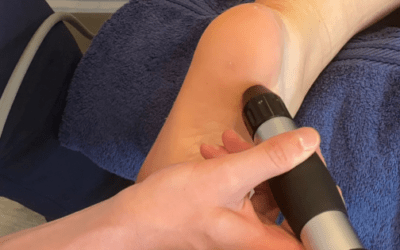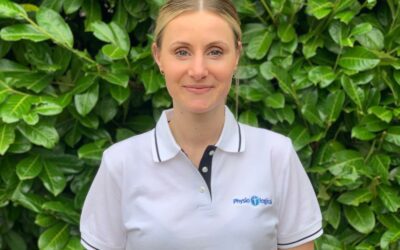Frozen Shoulder
Paul Killen, our expert shoulder physiotherapist, based in our private physio Basingstoke clinic will be sharing his knowledge about “Frozen Shoulder” with you today.
“Paul gave me exercises that enabled me to use my shoulder fully and move it properly after a couple of years of not being able to. Much appreciated!” Mrs A
The shoulder is a ball and socket joint normally associated with a wide range of movement. It is surrounded by a soft tissue capsule which encases the joint and holds in the lubricating fluid. This capsule is usually very loose to allow freedom of movement in all directions. However, in a frozen shoulder the capsule initially becomes inflamed and then contracts. This decreases the joint volume and results in varying degrees of pain and loss of movement for the sufferer.
The symptoms were described as far back as 1872 and the term ‘frozen shoulder’ has been used for over 80 years. However, only through research over the last 20 years do we now know what it actually is. Unfortunately, we still do not know why it happens. What is generally agreed is that frozen shoulder has broadly three phases starting with pain, followed by stiffness and then slowly resolving in a ‘thawing’ phase. The length of each phase varies and there is considerable overlap of phases but total duration of the condition averages 18 months to 3 years. However, some can experience problems for much longer.
All bad news so far then! So, how can we help you with your frozen shoulder at Physio-logical?
Our treatment decisions (which we will make together) depend on whether pain or stiffness is your main problem.
Where does your shoulder fit in?
Pain is my main problem
The aim of treatment is to decrease your pain and maintain or improve your movement. This may involve advice, gentle exercises, low level joint or soft tissue techniques and/or acupuncture. Aggressive painful stretching at this stage can prolong your problem (and it’s not a pleasant experience!). If you are not sleeping and/or have significant pain at rest which isn’t helped by medication, you may be advised to see a specialist to consider a steroid injection. If this is the case we can point you in the right direction as we have quick access to these services. When pain is the main problem the aim is to progress you to the point where stiffness is your main problem.
Stiffness is my main problem
The good news is that if your shoulder is here it is unlikely that you will go backwards. However, it doesn’t mean that you will have no pain! Pain may still be associated with certain movements and stretches but this stage allows a more active approach to your treatment. This may involve more intense, prolonged stretching, exercise and joint mobilisation with your physiotherapist and at home. Certain manual techniques have been proven to increase movement in a relatively short time period.
If you have a frozen shoulder we can help you by;
- Giving you an accurate diagnosis and explanation of the problem and its natural course.
- Working with you on a course of treatment including self-management strategies whilst monitoring results.
- Referring you to a shoulder surgeon at your request if your problem requires further investigation or intervention.
For assessment and a personal treatment programme for your frozen shoulder contact Physio-logical on 07835 712306, email us or book online





